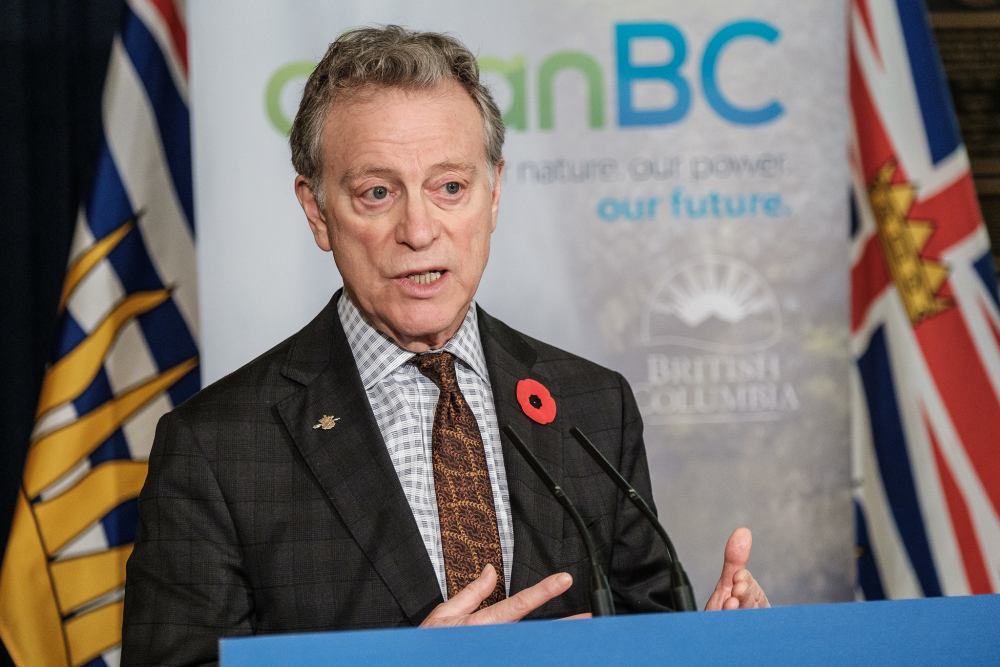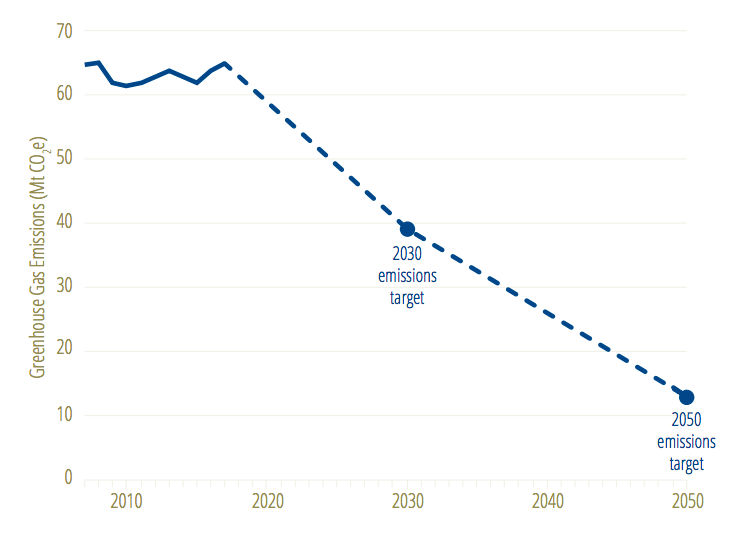Governments across Canada have a habit of making climate promises, setting goals, then failing to achieve them. But the science is clear — as is the message from our youth: We simply can’t afford to keep missing targets for reducing carbon pollution. We can’t afford it now, and future generations will not stand idly by as we pass an even bigger, more devastating buck on to them. In British Columbia, the government has introduced legislation containing new safeguards to make sure that doesn’t happen.
Bill 38 moves beyond good intentions and the short-term electoral cycle, putting B.C. alone in the realm of real accountability. The legislation will amend the Climate Change Accountability Act to require detailed annual reporting to track progress on reducing carbon pollution and to forecast expected emissions. It will also mandate the creation of an interim emissions target, by the end of next year, as a midway checkpoint before the legislated 2030 target.
An independent advisory committee will review progress and recommend changes to ensure B.C.’s targets are actually being met. The new accountability requirements will get even more specific with carbon pollution reduction targets for each sector, to be reviewed every five years.
With these moves, politicians in B.C. are taking critically important steps to take the politics out of climate action by locking in accountability and transparency measures. It’s North America–leading legislation that should serve as a blueprint for robust federal mechanisms that include five-year targets toward carbon neutrality by 2050 — with a few additions.
[tweetthis:B.C.’s North America–leading legislation offers a blueprint for federal accountability and transparency on climate action. #bcpoli #cdnpoli @Pembina]
Though long-term planning is key to solving a problem of this magnitude, B.C.’s legislation does not yet require plans for achieving carbon pollution targets beyond 2030. This is important because the investments we’ll be making — on clean-tech facilities and clean-energy infrastructure — are big. We need business certainty for decision-making of this scale, and that means planning for decades out, all the way to 2050 (around the time young Canadians marching in climate strikes today are sending their offspring out into the world). We need to set interim emissions targets beyond 2030 to help us stay on track to our legislated 2040 and 2050 targets.
This is critical because it takes a few years to find out how effective climate policies and programs are — just as it will take years to temper raging wildfires, destructive floods and prolonged droughts brought on by climate change. We can’t afford to get to 2030 only to find out we haven’t done enough. Interim targets will let the government see where it’s getting good bang for the buck — and where more action is needed.
We have long called for sectoral targets, and their establishment by 2021 is key. The next step is the deceptively simple-sounding task of clearly defining each sector. Will the transportation sector be considered in its entirety or divided into passenger transportation and freight, for example? Will industry be subdivided into mining, oil and gas, forestry and so on? Considering that some sectors emit far more (for instance, the gas sector is responsible for 20 per cent of B.C.’s carbon emissions, and the transportation of goods accounts for 18 per cent) and will require significant technological advancement to realize deep reductions, the process of defining each sector and setting specific targets is bound to be fraught. Setting and reporting on targets will make clear to all what the “fair share” is for each sector and how each is contributing to the collective effort to reach climate goals.
[tweetthis:Sectoral targets will make it clear how all parts of the economy are contributing to climate action. #bcpoli #CleanBC @Pembina]
Deep decarbonization by mid-century requires clear, consistent and increasing economic signals in all sectors across the country. The federal government plays an important role in ensuring that carbon pollution reductions are supported and co-ordinated and that all regions are contributing to and benefiting from climate solutions.
This kind of leadership requires moving beyond partisan climate politics and ensuring that national frameworks have longevity beyond four-year election cycles. Thankfully, in varying degrees, the federal election platforms of the Liberals, Bloc Québécois, NDP and Greens all contained commitments to increase climate accountability, including the establishment of shorter-term, science-based targets and provisions for independent and forward-thinking advice.
B.C.’s climate accountability and transparency legislation is a near-complete framework for moving from climate promises to performance. A minority federal government committed to climate action would do well to follow B.C.’s lead and act quickly to insulate climate targets against the vagaries and vulnerabilities of politics before it’s too late.
This op-ed originally appeared in the Globe and Mail on November 14, 2019.








